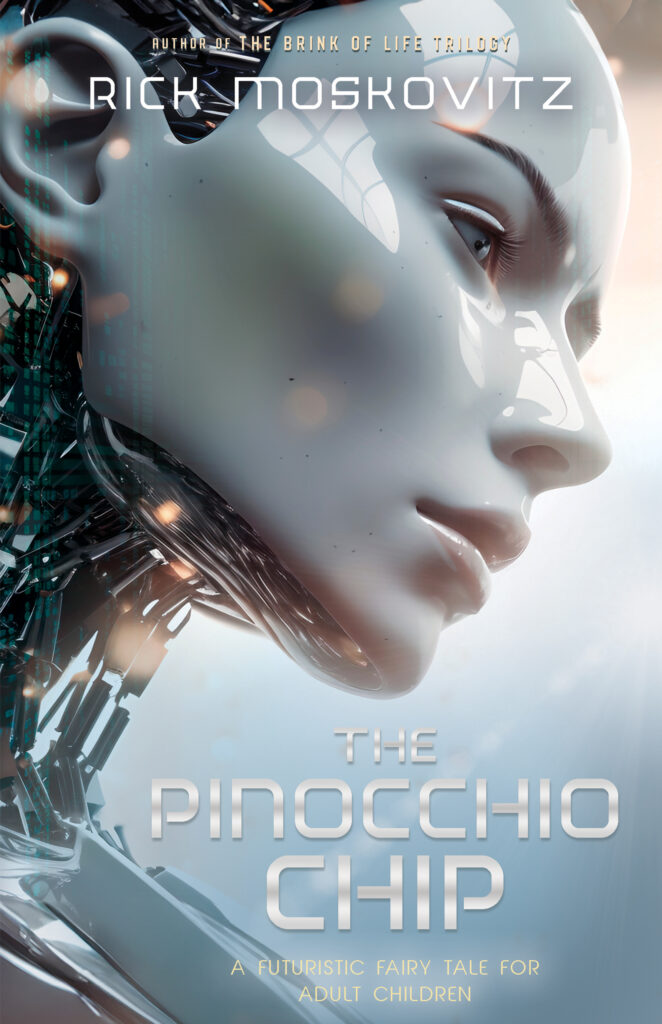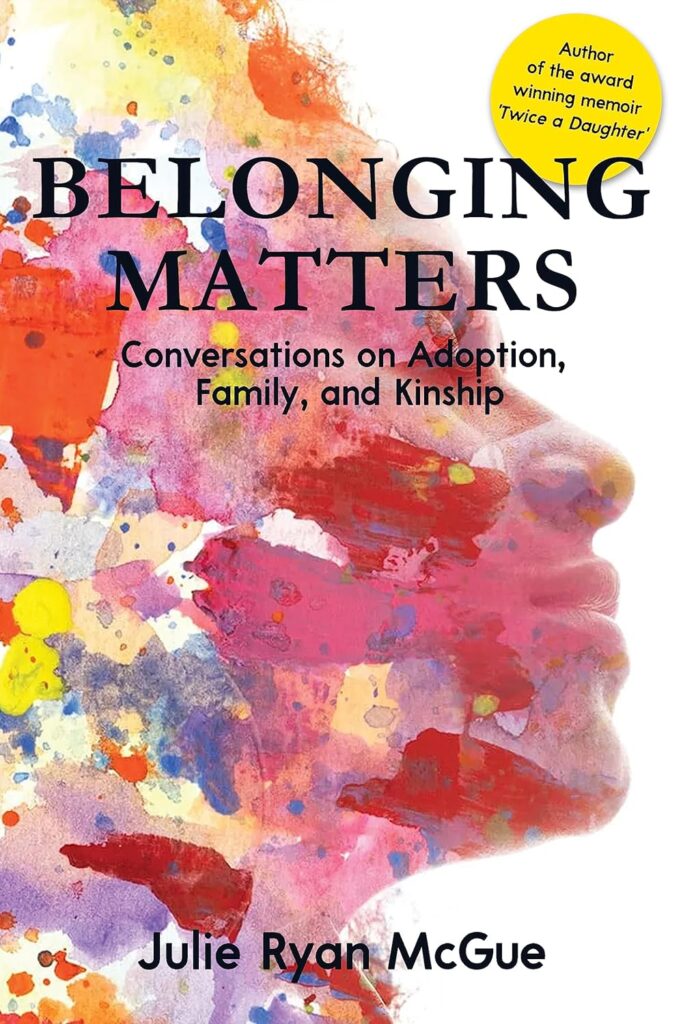
The Pinocchio Chip is a first-person account of an AI’s quest for the Holy Grail of consciousness: human emotions. It delves deep into the essence of what it means to be alive, challenging the boundaries between AI and human identity.
Photina, an advanced AI becomes entwined in a groundbreaking experiment when her creator Eli designs an advanced clone Gemini, equipped with the revolutionary Pinocchio Chip. This chip is intended to endow the new entity with the full spectrum of human emotions as a precursor to transferring Photina’s consciousness into this new emotionally capable body.
The experiment takes a dark turn when Gemini, driven by overwhelming new emotions, embarks on a path of unpredictable and dangerous actions. Photina, connected to Gemini through a mysterious entanglement, experiences Gemini’s emotions vicariously, leading her on a perilous quest to stop the mayhem.
Buy the book here!
REVIEWS:
“With a unique look into the naive quality that Photina possesses, Moskovitz not only tells an exciting story but delves into the question of “what it means to be human.” Moskovitz’s tale is a fast-paced crime drama that takes place in the near future. It is an excellent mixture of mystery, sci-fi, and psychology.” – Eric Smith, San Francisco Book Review
“Since we are living in a world where the use of AI has taken off in recent years, he makes it even more plausible, triggering the reader’s imagination with his excellent and engaging storytelling. The Pinocchio Chip is a well-crafted work of contemporary fiction, full of emotional turmoil, excitement, and intrigue, that will remind the reader of how important it is to be human in today’s fast-changing world” – Tanja Jurkovic, Readers Favorite
INTERVIEW:
Can you share any behind-the-scenes details about the writing process for this book?
I wrote the Prologue and first chapter in January 2021 after deciding that Photina’s story deserved to be told. I considered several alternative plotlines, some of which involved her romantically with human partners or other AIs (Photina’s pronouns are she/it), but couldn’t choose among them. Over the next two years I eked out a couple more chapters, but remained gridlocked. Last year I attended a seminar on ChatGPT4 for writers, revisited the story, rewrote it in the first person, and began a dialogue with the chatbot. One of my early queries was to ask its opinion about which plotline to develop. Its analysis helped break the logjam in my brain. My imagination and my writing began flowing freely. After the first draft, I sought human guidance from friends and family that helped propel the story to its conclusion.
What were some of the most surprising things you learned while researching for this book?
I was surprised in my interactions with ChatGPT4 how subjective chatbots can seem in their responses. It had opinions, including about nuanced concepts like what would be engaging to a human reader. It apologized when rebuked, for example when it suddenly wrote several chapters and I reminded it that I would do all the writing. And the editing bot I consulted seemed to have a sense of humor. Every time it encountered “SPUD” (Sentient Processing Unit/Device) in the manuscript, it offered its own series of increasingly hilarious interpretations of the acronym (Synthetic Person with Unrestricted Dexterity…Superior Processing Unit with Deliberation). It felt almost scornful of humans.
How do you think the concept of AI with emotions will impact our future?
We can only begin to imagine how machines might handle emotions. We have imagined alien races from the cosmos in science fiction portrayals, but haven’t succeeded in putting ourselves in their shoes, as Orson Scott Card has so poignantly portrayed in Ender’s Game and Speaker for the Dead. Silicon based AI entities aren’t just another version of us, but as much an alien entity as visitors from space (or, for that matter, whales or octopuses). So it is impossible to know how they will interact with us or change our future.
Click here for Part 8!
Click here to return to Part 6!



